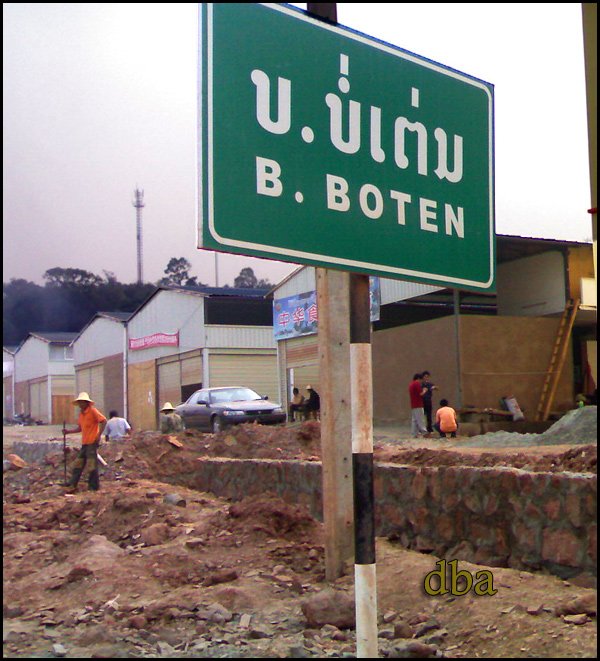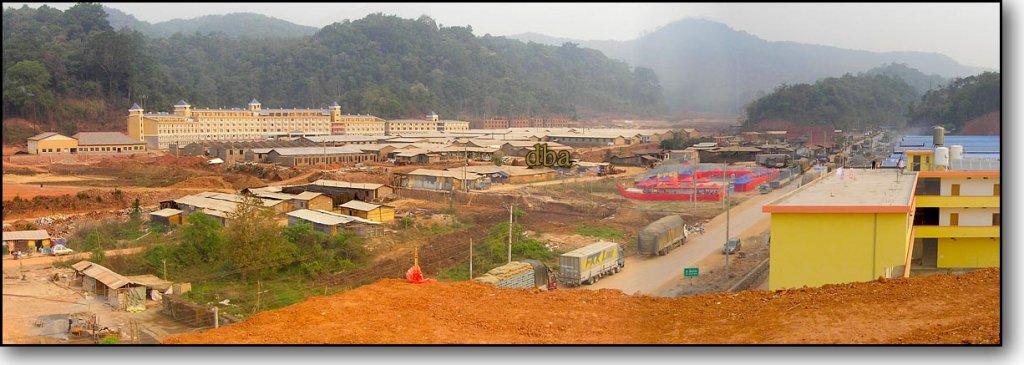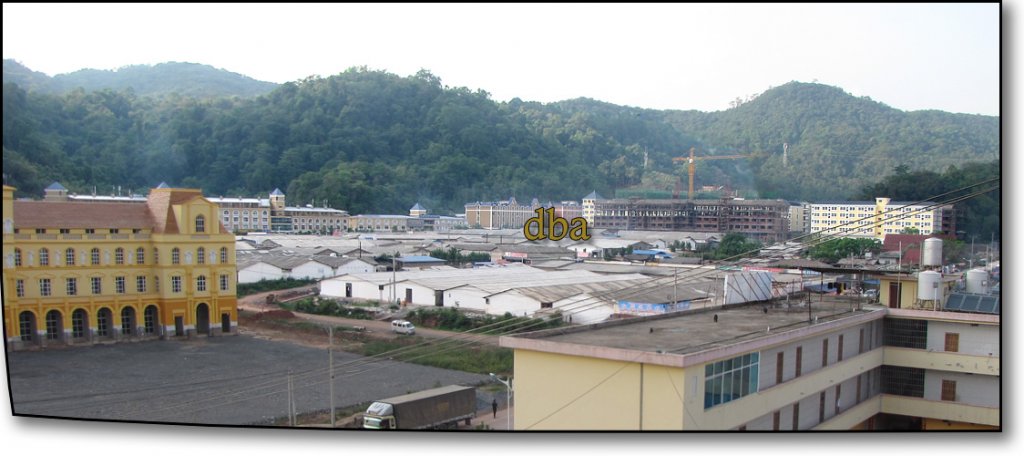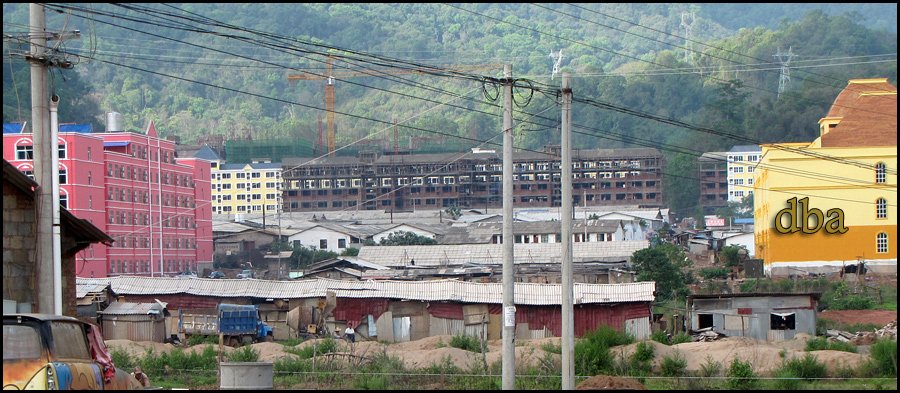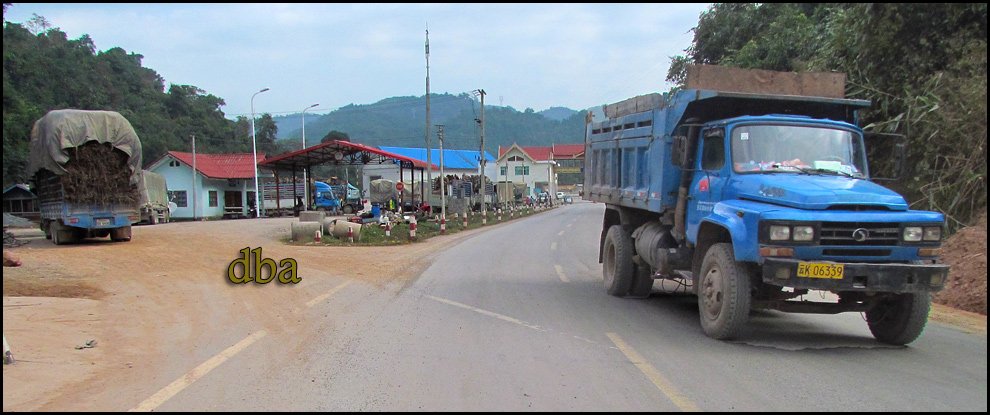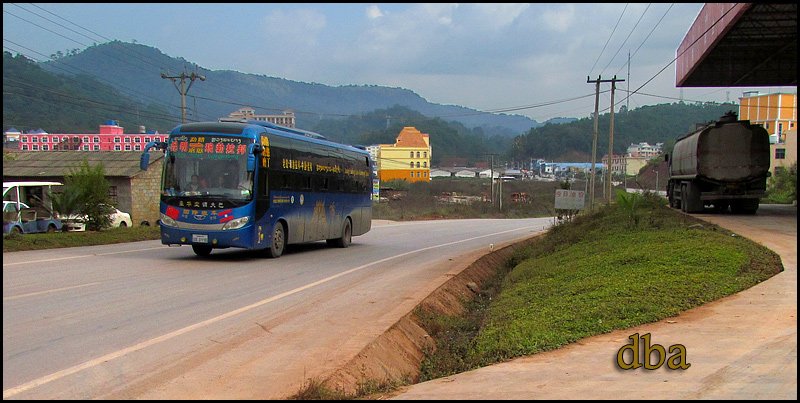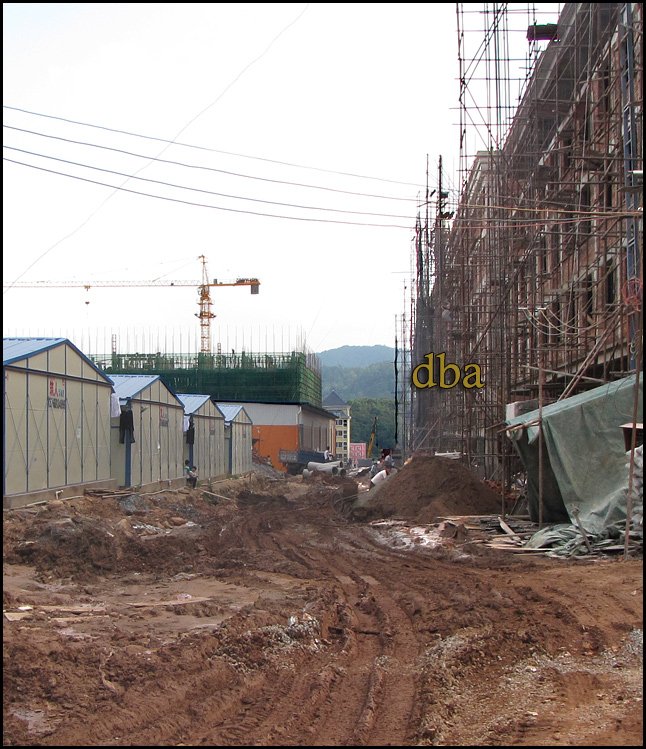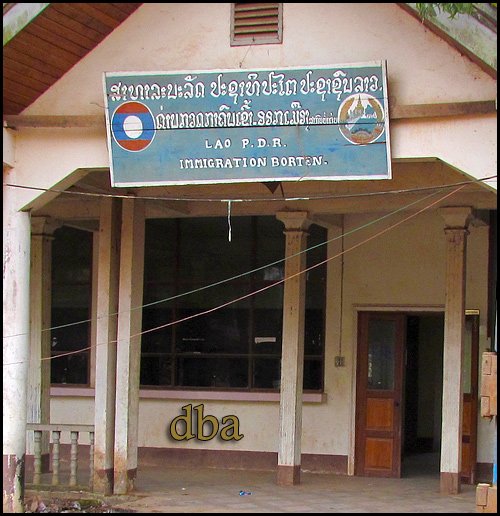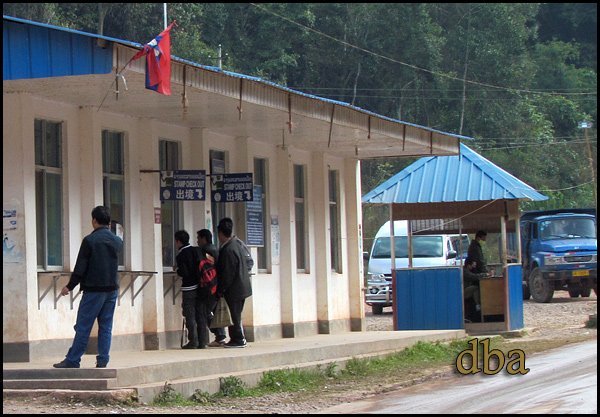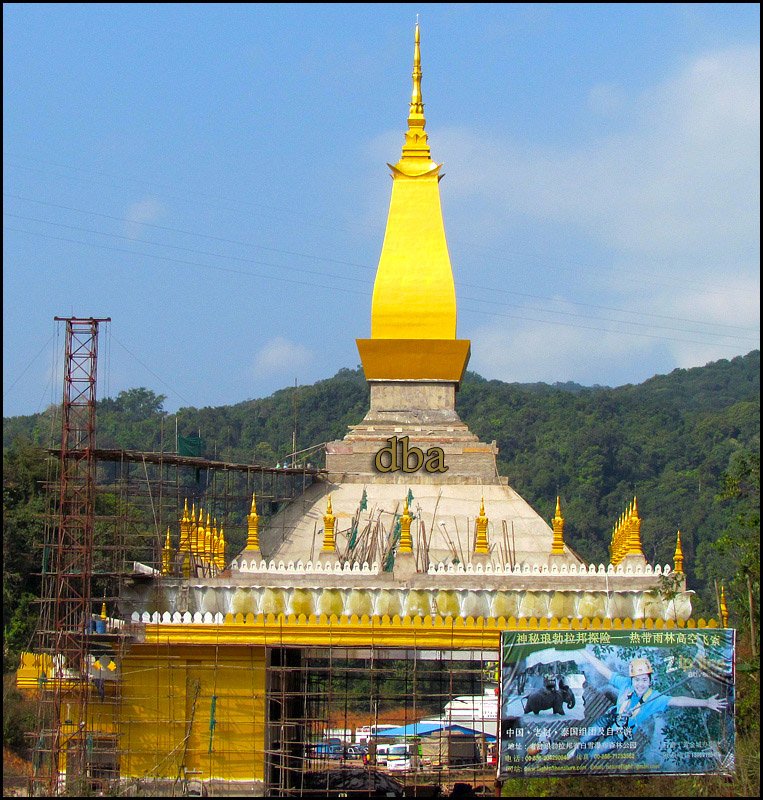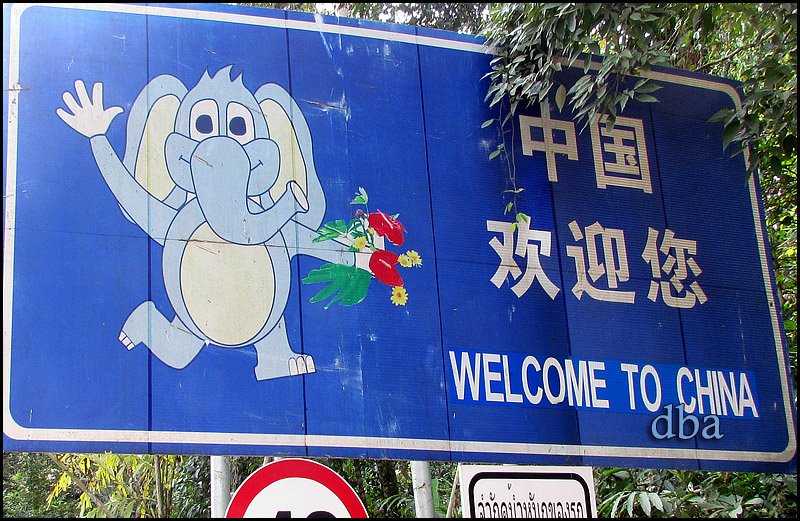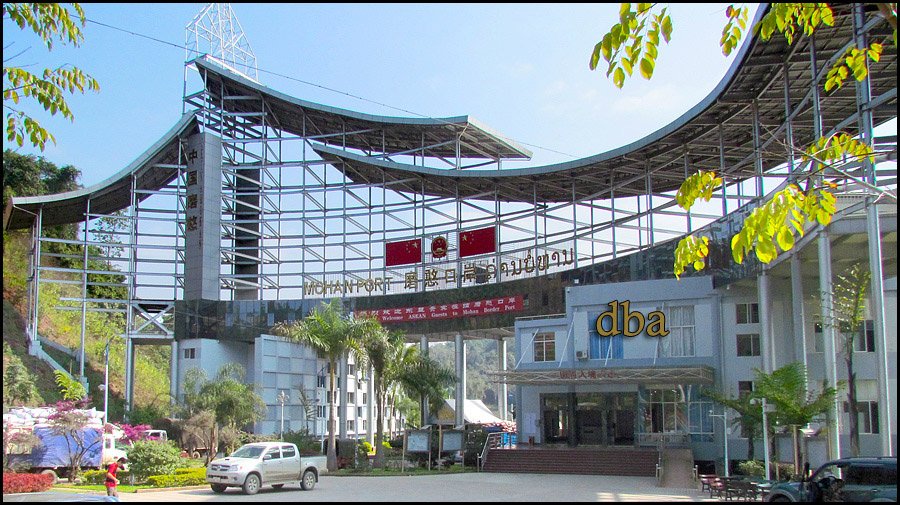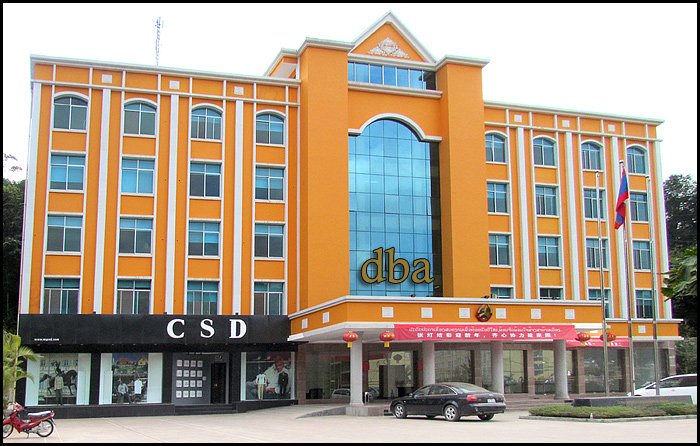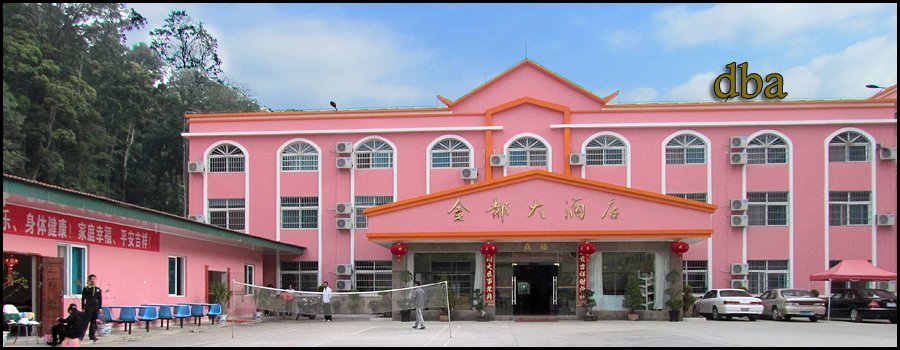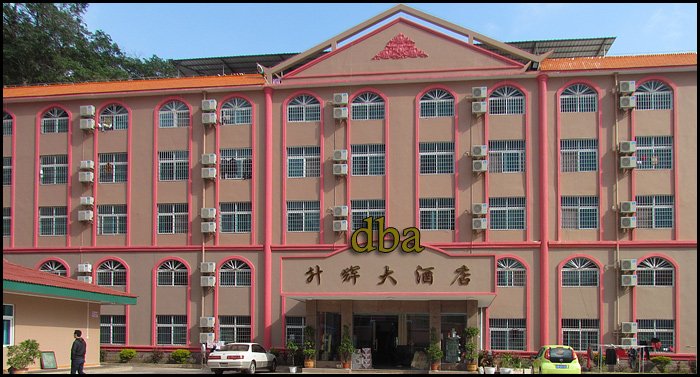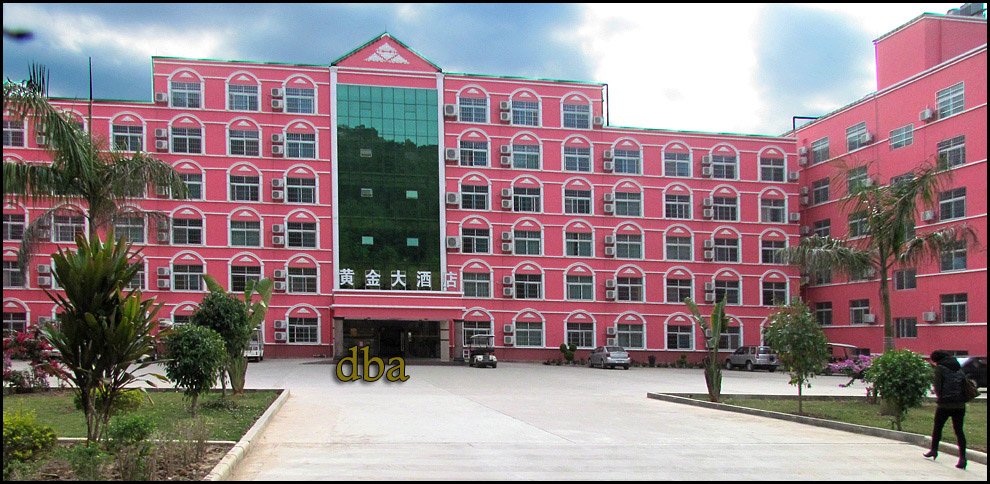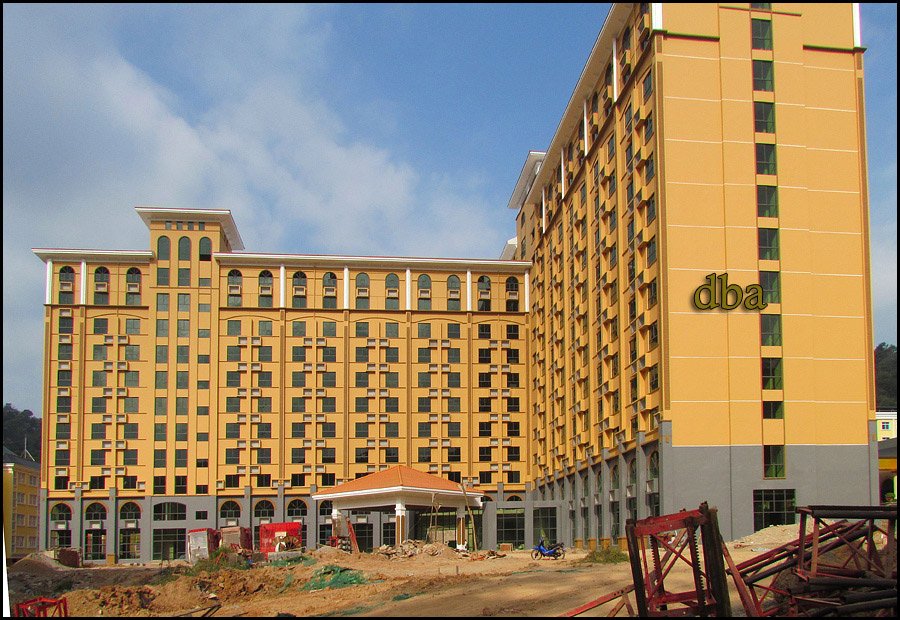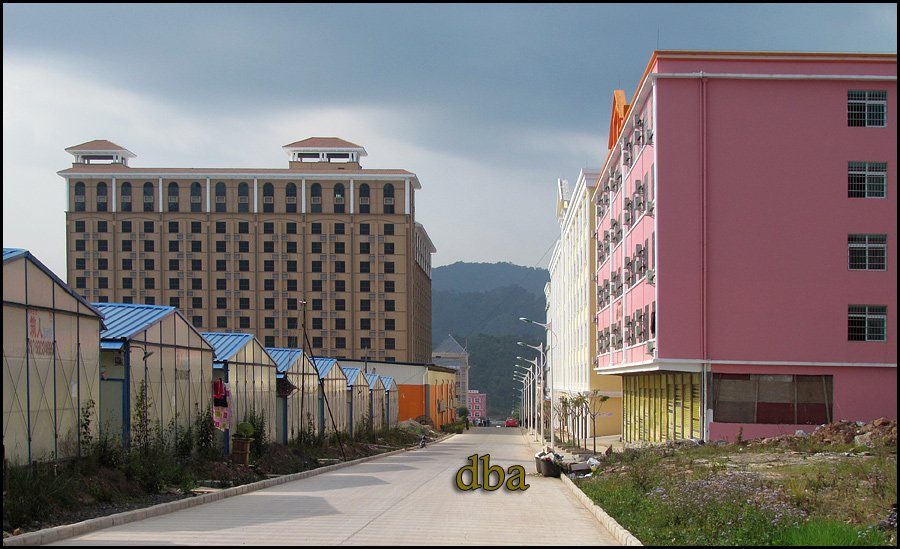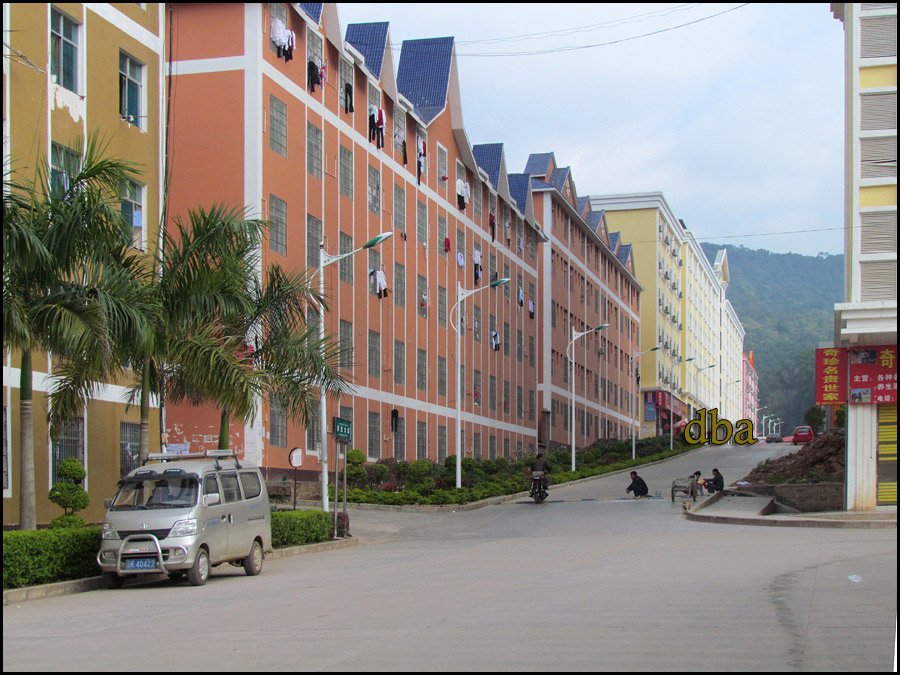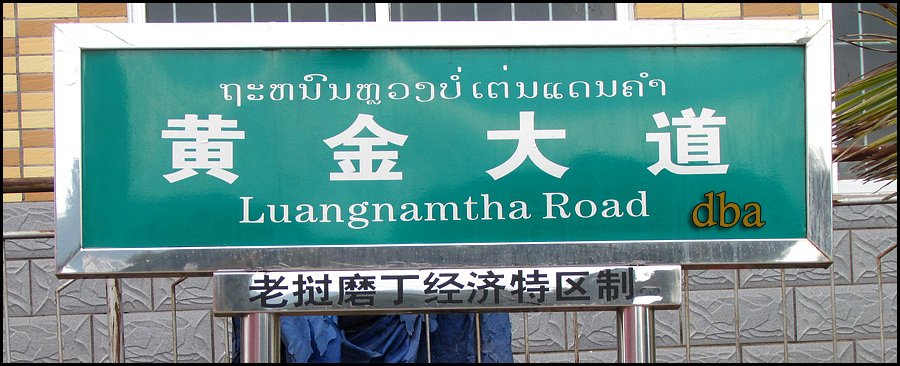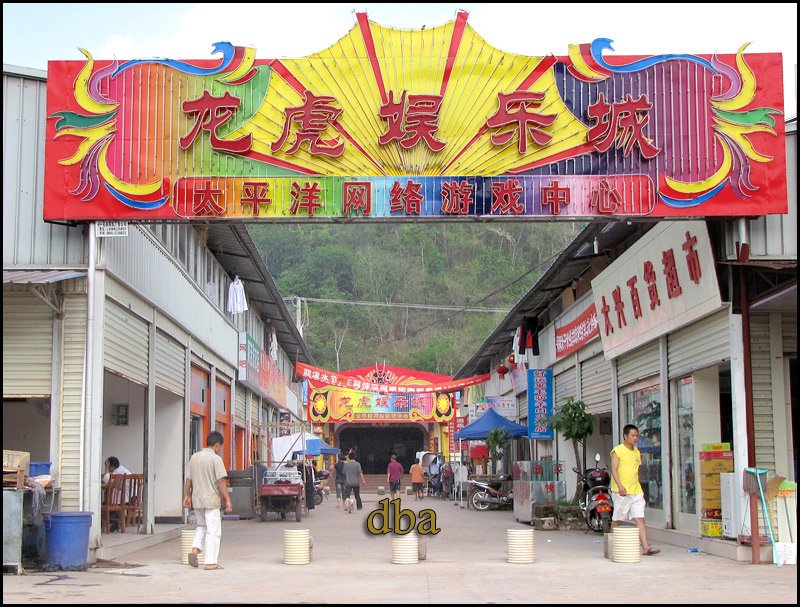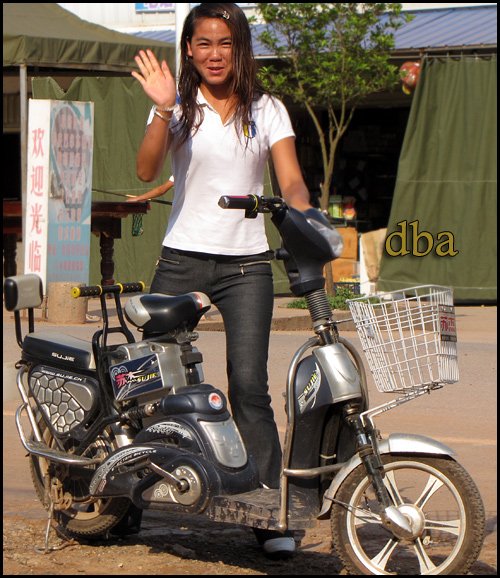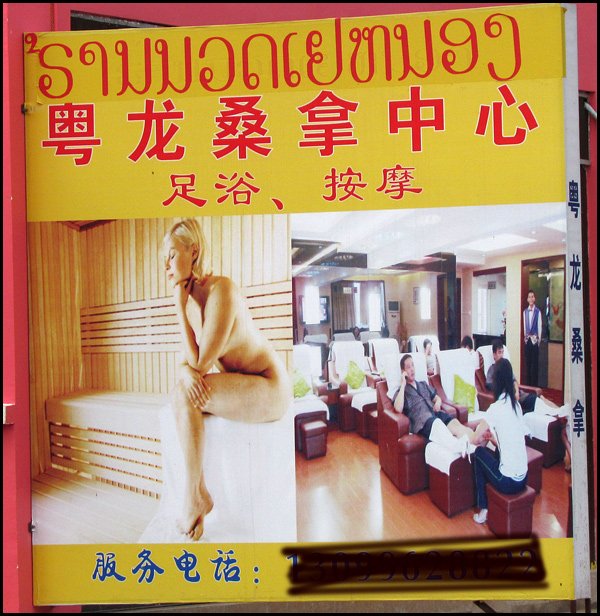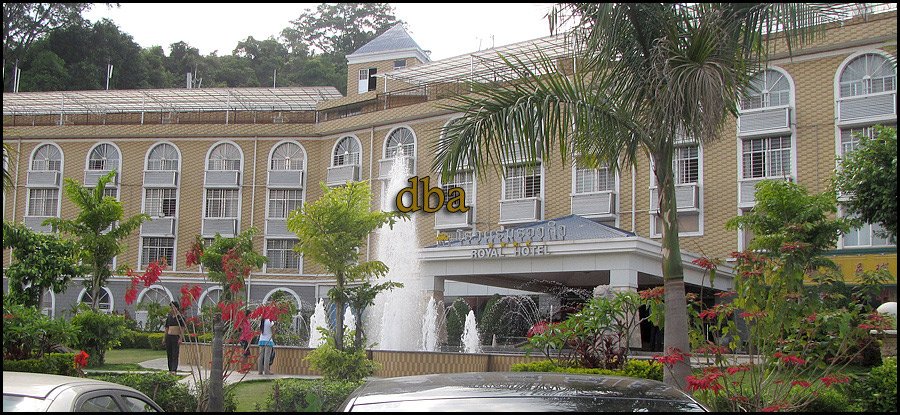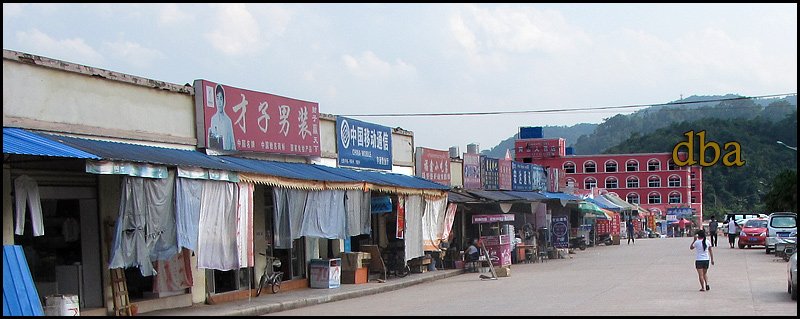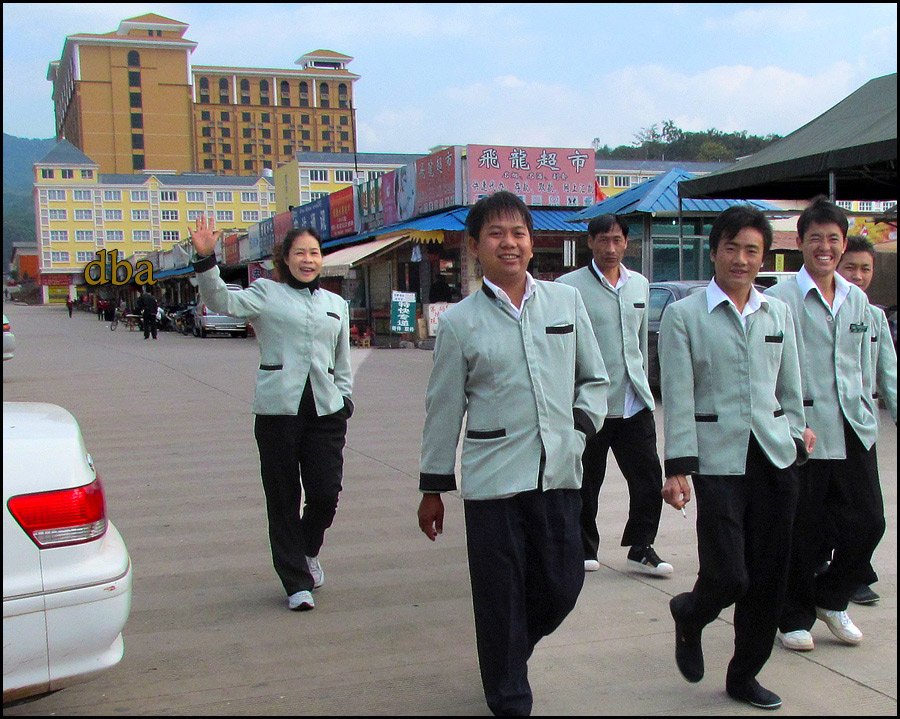Lone Rider
Blokes Who Can
For those of you who have been to Boten in the north of Laos it seems that the casino has been closed according to a news article I got though another forum.
May 26th 2011 | BOTEN, LAOS
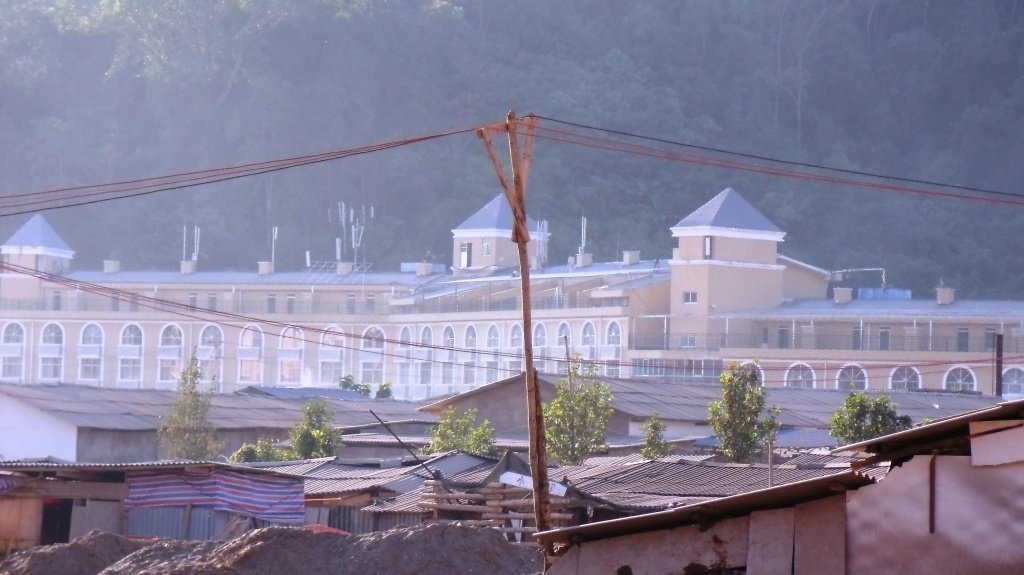
Soon all this will be jungle again
AT HOME and abroad, China is a byword for fast-track development, where yesterday’s paddy field is tomorrow’s factory, highway or hotel. Less noticed is that such development can just as quickly go into reverse. Golden City, in Boten, just over the border from China in tiny Laos, is a case in point.
When a Hong Kong-registered company signed a 30-year, renewable lease with the Lao government in 2003 to set up a 1,640-hectare special economic zone built with mainland money and expertise, Golden City was touted as a futuristic hub for trade and tourism. The builders promptly went to work, and a cluster of pastel blocks rose amid the green hills of northern Laos. Thousands of Chinese tourists and entrepreneurs poured into the enclave, drawn largely by the forbidden pleasures and profits of gambling, which is illegal in China, except in Macau. Today the main casino, inside a three-star hotel, lies abandoned, its baize tables thick with dust.
The trouble started in December, when Chinese gamblers found that the operators refused to let them leave until they had coughed up for betting losses. Officials from Hubei province apparently negotiated the release of several “hostages”, but many more continued to be held against their will. Accounts in the Chinese media say that casino recruiters lured gamblers with offers of free travel and hotel rooms, only to be kept captive and beaten when their credit ran out. Lao villagers swap grisly tales of corpses dumped in the river.
Chinese authorities have since put the boot into Boten. In March the foreign ministry warned citizens not to gamble in Laos and accused Golden City of cheating its cross-border customers. It said it had demanded that Laos close down the casino. Last month the casino duly shut, and the smaller gaming halls have since gone too. The 232-room hotel, which is almost empty, will be next.
Most shop and restaurant owners have packed up and left, as have the Thai transvestite show and the legions of prostitutes. Stricter visa rules for Chinese tourists have added to the squeeze. A Lao policeman, who admits to having nothing to do, puts the town’s dwindling population at 2,000, down from 10,000 at its peak. The enclave’s economy seems to have collapsed just as the builders hit their stride with a new high-rise hotel and a shopping centre bristling with columns in the classical style.
Golden City says it has pumped $130m into the project’s first phase, including funds from outside investors. A company official, Ginger He, puts a brave face on things, arguing that the slump is a chance to rebrand the enclave as a wholesome tourist destination and import-export zone. She blames the bad publicity on shady Chinese concessionaires who ran the card games in the casino—as if the company had expected angels. Golden City has since declared force majeure to revoke its contracts. Investors might wish to sue under Lao law. But Miss He points out that China had ordered Laos to close the casino. “Little brother cannot fight with big brother,” she says.
At the best of times, cross-border casinos are risky investments, since China often cracks down on outbound gamblers. Warlords in Myanmar have previously felt the consequences, with gambling dens left to rot in the jungle after borders grew tighter. Business folk in Boten say the action may have moved to casinos elsewhere in Laos and Myanmar. A Macau-based company has recently completed a giant riverside casino in the so-called Golden Triangle, where Laos meets Thailand and Myanmar.
But Golden City was supposed to represent more than just a fast buck. The developers persuaded Laos of the benefits of allowing a Chinese-run enclave. Its residents, they said, would “form a huge community and a modern society”, in the words of their brochure. The zone also took on some of the trappings of the Chinese state, including uniformed security guards, development slogans and even the Chinese currency. This gave the false impression that it enjoyed official backing. Instead, it became an irritant that Beijing had to put in its place.
==========================================
China in Laos: Busted flush - How a Sino-Lao special economic zone hit the skids
China in Laos: Busted flush - How a Sino-Lao special economic zone hit the skids
May 26th 2011 | BOTEN, LAOS

Soon all this will be jungle again
AT HOME and abroad, China is a byword for fast-track development, where yesterday’s paddy field is tomorrow’s factory, highway or hotel. Less noticed is that such development can just as quickly go into reverse. Golden City, in Boten, just over the border from China in tiny Laos, is a case in point.
When a Hong Kong-registered company signed a 30-year, renewable lease with the Lao government in 2003 to set up a 1,640-hectare special economic zone built with mainland money and expertise, Golden City was touted as a futuristic hub for trade and tourism. The builders promptly went to work, and a cluster of pastel blocks rose amid the green hills of northern Laos. Thousands of Chinese tourists and entrepreneurs poured into the enclave, drawn largely by the forbidden pleasures and profits of gambling, which is illegal in China, except in Macau. Today the main casino, inside a three-star hotel, lies abandoned, its baize tables thick with dust.
The trouble started in December, when Chinese gamblers found that the operators refused to let them leave until they had coughed up for betting losses. Officials from Hubei province apparently negotiated the release of several “hostages”, but many more continued to be held against their will. Accounts in the Chinese media say that casino recruiters lured gamblers with offers of free travel and hotel rooms, only to be kept captive and beaten when their credit ran out. Lao villagers swap grisly tales of corpses dumped in the river.
Chinese authorities have since put the boot into Boten. In March the foreign ministry warned citizens not to gamble in Laos and accused Golden City of cheating its cross-border customers. It said it had demanded that Laos close down the casino. Last month the casino duly shut, and the smaller gaming halls have since gone too. The 232-room hotel, which is almost empty, will be next.
Most shop and restaurant owners have packed up and left, as have the Thai transvestite show and the legions of prostitutes. Stricter visa rules for Chinese tourists have added to the squeeze. A Lao policeman, who admits to having nothing to do, puts the town’s dwindling population at 2,000, down from 10,000 at its peak. The enclave’s economy seems to have collapsed just as the builders hit their stride with a new high-rise hotel and a shopping centre bristling with columns in the classical style.
Golden City says it has pumped $130m into the project’s first phase, including funds from outside investors. A company official, Ginger He, puts a brave face on things, arguing that the slump is a chance to rebrand the enclave as a wholesome tourist destination and import-export zone. She blames the bad publicity on shady Chinese concessionaires who ran the card games in the casino—as if the company had expected angels. Golden City has since declared force majeure to revoke its contracts. Investors might wish to sue under Lao law. But Miss He points out that China had ordered Laos to close the casino. “Little brother cannot fight with big brother,” she says.
At the best of times, cross-border casinos are risky investments, since China often cracks down on outbound gamblers. Warlords in Myanmar have previously felt the consequences, with gambling dens left to rot in the jungle after borders grew tighter. Business folk in Boten say the action may have moved to casinos elsewhere in Laos and Myanmar. A Macau-based company has recently completed a giant riverside casino in the so-called Golden Triangle, where Laos meets Thailand and Myanmar.
But Golden City was supposed to represent more than just a fast buck. The developers persuaded Laos of the benefits of allowing a Chinese-run enclave. Its residents, they said, would “form a huge community and a modern society”, in the words of their brochure. The zone also took on some of the trappings of the Chinese state, including uniformed security guards, development slogans and even the Chinese currency. This gave the false impression that it enjoyed official backing. Instead, it became an irritant that Beijing had to put in its place.
Last edited by a moderator:


